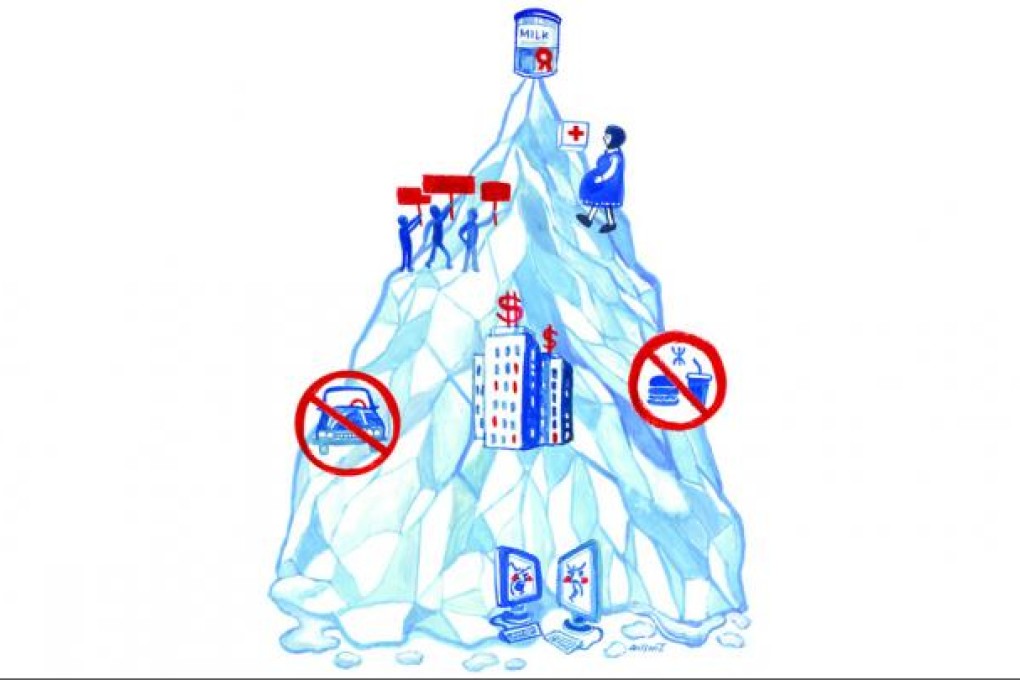Milk-powder row symptom of a wider rift with mainland
The mounting grievances between mainlanders and Hongkongers pose a formidable challenge to political leaders on both sides of the border

"Hong Kong was called a shopping paradise. I would say it's a shopping hell now."

The latest restriction reflects the tip of the iceberg. A plethora of issues bring mainland and Hong Kong residents into conflict - a problem for governments on both sides of the border.
With his popularity flagging since taking office in July, Chief Executive Leung Chun-ying often appears to be walking a tightrope between pleasing the locals and allaying discontent across the border.
Leung, who is in the capital today for the closing of the National People's Congress, might face a new round of pressure from state leaders. It is his second visit to the capital in as many weeks.
"The new people in charge of the ministries and commissions will be appointed after the closing of the NPC session. I hope to have preliminary discussions with them on Hong Kong's future development and the [bilateral] work ahead," Leung said on Tuesday. Last week in Beijing, Leung denied that the two-can limit on milk-powder exports was a populist gesture to assuage public anger in the city. "Some families could not buy the milk powder their babies are used to consuming in the market, which was indeed troubling to them," he said. "So this is not a problem of populism."
Parallel-goods traders, who buy goods in Hong Kong for sale across the border, taking advantage of lower prices and tariffs in the city, have been the target of popular anger, especially in the northern New Territories.